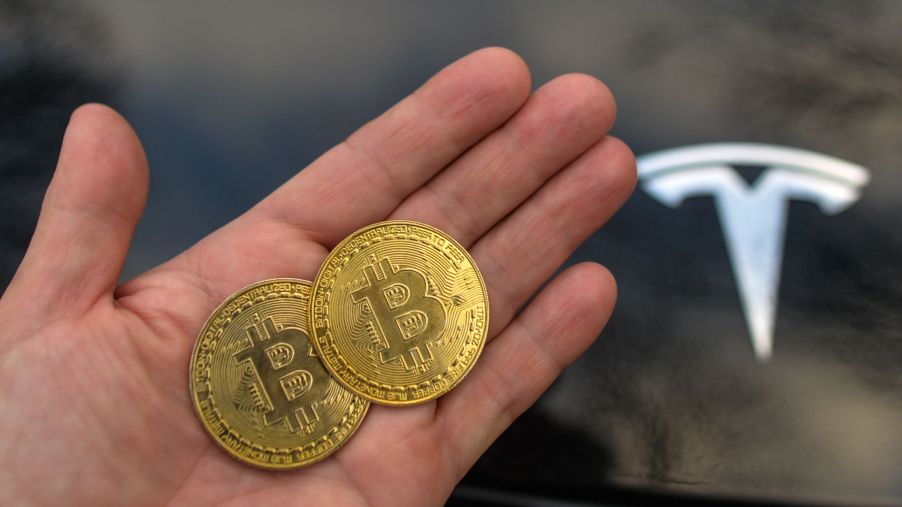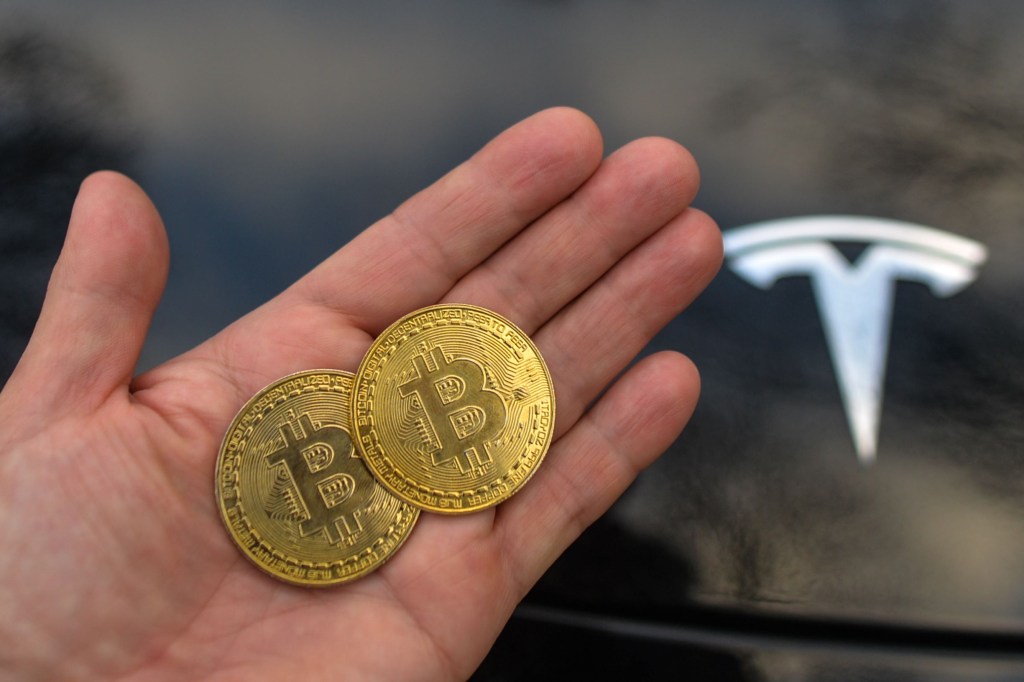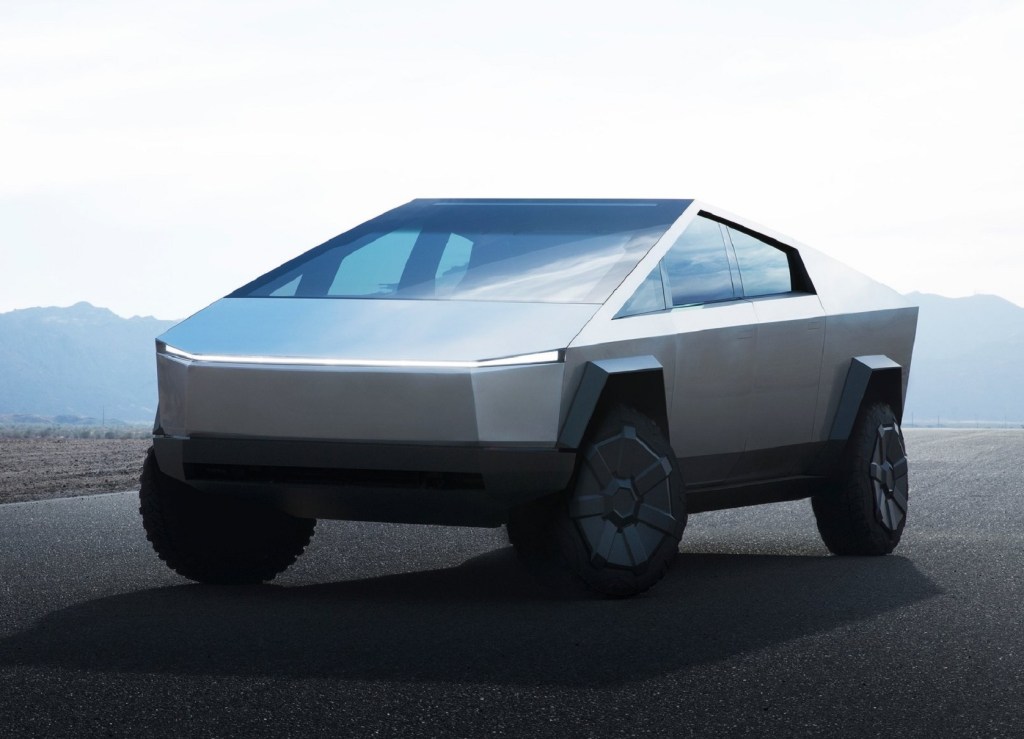
Tesla Made a Profit From Bitcoin and Emission Credits, Not Cars
It might be a beloved luxury brand, but Tesla has come under fire recently from several angles. Many of the issues are based around the EV company’s not-actually self-driving ‘Full Self-Driving’ and Autopilot technology. However, Tesla might have more problems on the horizon. That’s because, although it’s profitable for now, the electric automaker isn’t making money from making cars. It’s because of the Tesla Bitcoin stockpile and emission credits sales.
Making cars loses money, but Tesla Bitcoin and emission credits sales mean profit

On Monday, April 26th, 2021, Tesla released its Q1 2021 earnings report. And initially, it seems like good news for the electric automaker. With a $10.4 billion revenue, Tesla had a net income of $438 million, the Wall Street Journal reports. And this follows a full year of profitability that saw the company earn a net $721 million profit, The Drive reports.
However, despite being an automaker, Tesla isn’t making money from selling cars. Despite being poised to see a record number of deliveries, the company isn’t turning a profit from its EVs, Car and Driver reports. Instead, it’s because of selling regulatory emission credits as well as releasing some of the Tesla Bitcoin pile.
In Q1, 2021, Tesla Bitcoin sales amounted to $101 million, while the automaker earned a $518 million revenue from selling emission credits. Notice how that adds up to more than $438 million? That’s because, without the credits or Bitcoin, Tesla loses money on its cars, Autoweek explains.
And while Tesla only started accepting Bitcoin as payment recently, it’s been selling credits for years. Plus, Tesla’s profitability streak since Q3 2019 only started because of the emissions credits, Automotive News reports. To quote AN, “Tesla has generated nearly twice as much money from selling credits to competitors as it has reported in net income.”
Profits are good, but the way they’re made isn’t necessarily good for the company’s image
Admittedly, 2020 was a rough year for consumers and automakers as a whole. And though Tesla managed to weather the ongoing chip shortage, its 2020 deliveries were still affected. So, it makes some sense that selling EVs would be less profitable than selling other assets.
And Tesla does have a lot of Bitcoin laying around. After all, it bought $1.5 billion in the cryptocurrency earlier in 2021, The Drive reports. Plus, Tesla claims it’s re-investing its earnings into improving its operations, The Drive points out.
However, taking away the Tesla Bitcoin sales, the automaker only turns a profit because of regulatory emission credits. And that’s been the situation for some time, Car and Driver reports. While no company wants to go bankrupt, for an automaker to not make money from selling cars is rather odd.
More to the point, Tesla’s Bitcoin investment, while technically financially savvy, arguably tarnishes the company’s image. Electric cars are meant to be better for the environment. But generating cryptocurrencies consumes massive amounts of energy and releases massive amounts of emissions, Autoblog explains. It might be helping clean up EV batteries, but using Bitcoin is in some ways a step back for Tesla.
The sale of emission credits also has some potential downsides. However, this isn’t a Tesla-specific issue. Buying these credits can allow ‘dirty’ practices to continue under the guise of being climate-friendly.
For example, Occidental Petroleum recently sold some “100% carbon-neutral” crude oil, Autoblog reports. There wasn’t anything special about the oil, though. It’s just that Occidental bought enough credits to make the oil carbon-neutral. This allows it to charge a higher premium, which lets it buy more emission credits without actually making any environmental improvements, Reuters muses. It’s not too dissimilar from what GM did with the Lordstown plant.
That’s not to say emission credits can’t be useful for financing startups or climate-related schemes. But they need to be used judiciously or regulated more intensely.
Will the Tesla Bitcoins and emission credits continue to buoy the brand?
The Tesla Bitcoin stockpile will take some time to sell off, so it will continue being a potential revenue source. However, future emission credit sales might be hitting some snags.
The US government is considering introducing additional incentives to boost EV sales. That potentially means more tax credits for consumers and higher manufacturing caps for automakers. But the NHTSA hasn’t finalized its decision regarding an emissions fine increase.
The increase was supposed to start in 2019, but the previous administration delayed it until 2022. And Tesla has been lobbying to reinstate it, Roadshow reports. Otherwise, it risks losing profit from selling those credits.

That doesn’t mean Tesla couldn’t start turning a profit from cars, though. Its upcoming electric pickup, the Cybertruck, is reportedly almost production-ready. And with several states and countries beginning to ban ICE vehicles, EVs will be even more crucial. Once that happens, Bitcoins and credits might become things of the past for Tesla.
Follow more updates from MotorBiscuit on our Facebook page.


